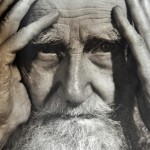[Originally published as ch. 1 in The Significance of Philosophical Skepticism]
 Stroud examines the Cartesian argument for skepticism about the external world. Reflecting on our knowledge is a common, everyday task, e.g. when we examine if what we know about the common cold can be true. Descartes did this common, everyday task, except he did so over all his knowledge. He found a common source to most of his beliefs: the senses.
Stroud examines the Cartesian argument for skepticism about the external world. Reflecting on our knowledge is a common, everyday task, e.g. when we examine if what we know about the common cold can be true. Descartes did this common, everyday task, except he did so over all his knowledge. He found a common source to most of his beliefs: the senses.
He then put himself in the best possible situation that one could be in to get knowledge through the senses: sitting in front of his fire with paper in hand. If this case is truly representative of how we get knowledge (or, more accurately, how we think we get knowledge) of the external world, then Descartes’ findings about this case will be representative of sense-knowledge. He found that he couldn’t distinguish reality from dreaming, and you don’t know things on account of your dreams; so he couldn’t know that he was sitting by the fire.
Descartes assumes at least three things:
- You can’t know something on account of your dreams. This is widely regarded as correct. The way we normally use “know” excludes us from knowing something on account of our dreams.
- To know x through your senses, you’d have to know you weren’t dreaming when you thought you were learning x through your senses. This second assumption is more difficult to discuss. To know x, we don’t have to know everything that must be true if x is true. If we did, we’d have to know an indeterminate number of propositions. But we do have to know that some things that would contradict x are false. And we have to know the that evidence that undermine our evidence for x is false. So it’s not clear how much we have to know in order to know x. Descartes idea that we have to know we aren’t dreaming to know x has been intuitively forceful throughout history. So it’s at least plausible.
- You can’t distinguish dreaming from being awake. What evidence could you have for believing you were not dreaming that itself could not be the result of a dream? Take the classic example of asking someone to pinch you to see if you are dreaming. Presumably, if it hurts, then you are not dreaming. But why couldn’t the pain be the result of a dream? So there is no evidence that would show you were not dreaming.
All these assumptions put together leads one to conclude that you can never know anything through your senses, because at any moment you might be dreaming and therefore the evidence on which you are basing your beliefs might be false.
So, prima facie, Descartes’ arguments are compelling. We are left behind a veil that separates us from reality. We have lost knowledge of chairs, tables, rocks, etc. We’ve even lost knowledge that other people exist. We can’t dismiss Descartes’ conclusion on the basis that it is some kind of philosophical knowledge, not the normal knowledge people care about, because Descartes reflected upon knowledge in the manner that people reflect upon knowledge everyday.
Join other dedicated readers of Thinking and Believing and subscribe to the email list. You'll receive every new post in your inbox, so you never have to worry about missing a post. Click here to subscribe.